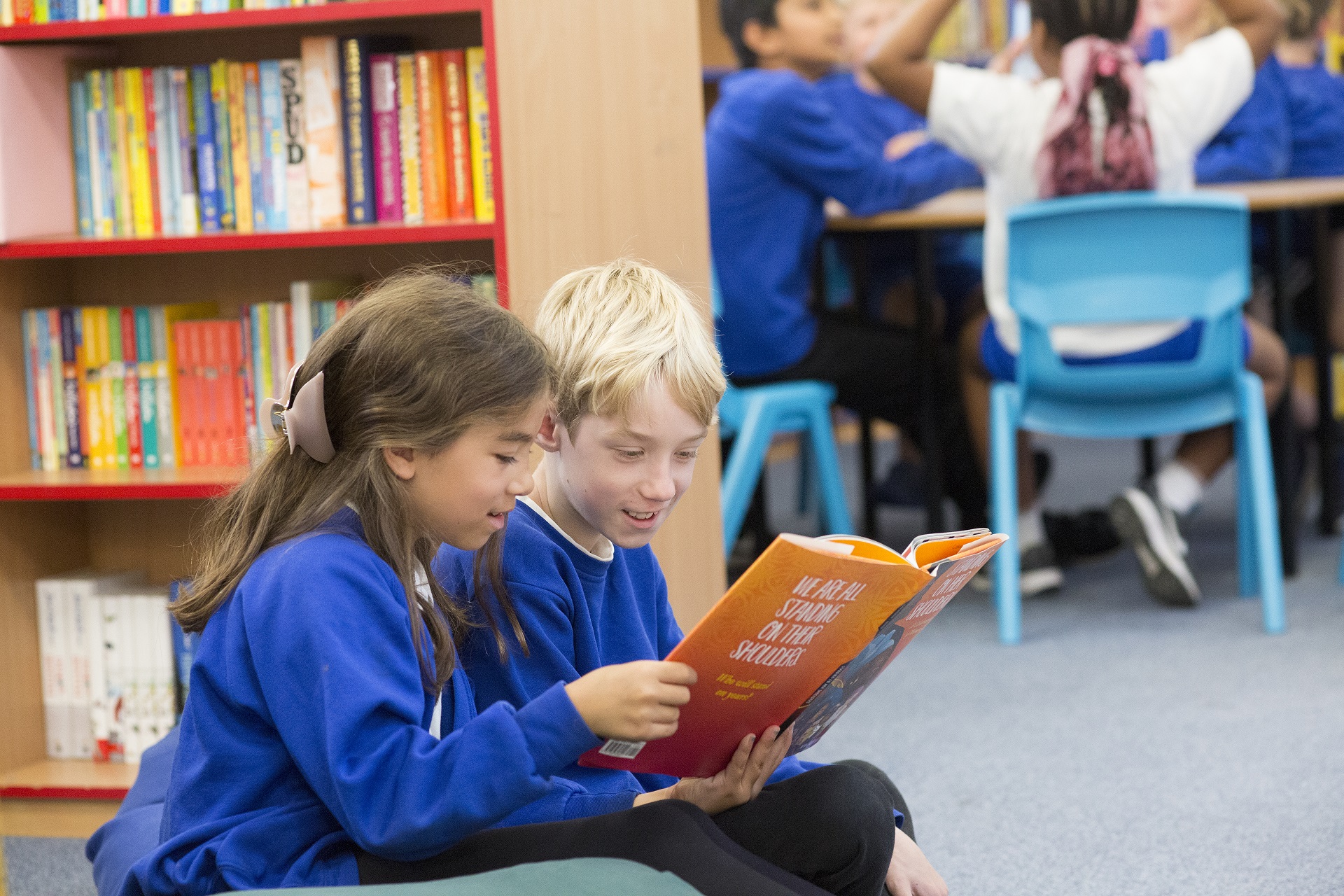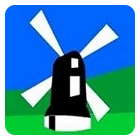English
INTENT
Our curriculum intent for English learning and teaching is to provide a diverse, stimulating and challenging reading curriculum which enables our children to develop fluency and independence in writing .
IMPLEMENTATION
At Brookmead School we are passionate about reading and about becoming authors. Our staff implement this curriculum with enthusiasm to inspire our learners.
Reading

Reading underpins our whole curriculum and is linked to every subject that the children learn. We highly value good quality systematic teaching of phonics and early reading which is built upon throughout the school to ensure our children enjoy reading and become authors through their own writing.
We use Read Write Inc to teach early reading and writing skills. We use lit / lang (linked to Read Write Inc) for teaching and learning of handwriting. Our book banded books begin with Read Write Inc reading scheme books to ensure continuity of provision and to enrich the learning in phonics and reading session. As children become more fluent readers we have quality book banded 'real' books which build on readers skills. These are located in our library to ensure a love of reading.
Our teaching of spelling across the school uses Read Write Inc to ensure continuity of provision and a clear building of skills. As children progress through the school, the teaching of spelling is applied through independent writing (being an author).
Through a range of quality, challenging texts the children will develop their reading skills; they will gain the knowledge they need to decode words, explore vocabulary and deepen their understanding of what they have read. We believe children should be immersed in rich literature and be given opportunities to investigate diverse and representative characters, positive role models, high level vocabulary, a range of genres and various authors.
By regularly visiting our school library, our classes can find, choose and share books. Storytime and book talk is a priority in all year groups. We also take part in author visits, local library visits and book events to enthuse a love of reading.
Our shared year groups areas celebrate our termly core and exposure texts - we have ensured diversity of subject matter and authors across the English curriculum. These include Wonder by R.J Palacio, the Little People Big Dreams series, Boy at the Back of the Class by Onjali Q Rauf, My Awesome Japan Adventure.
At Brookmead, we use the VIPERS approach to teacher comprehension. The 6 domains focus on the comprehension aspect of reading and not the mechanics: decoding, fluency, prosody etc. As such, VIPERS is not a reading scheme but rather a method of ensuring that teachers ask, and students are familiar with, a range of questions. They allow the teacher to track the type of questions asked and the children’s responses to these which allows for targeted questioning afterwards.
Writing
At Brookmead school, we use the Talk for Writing approach. This is a powerful approach as it is based on the research of how children learn. It enables children to read and write independently for a variety of audiences and purposes within different subjects. A key feature is that children internalise the language structures needed to write through ‘talking the text’, as well as close reading. The approach moves from dependence towards independence, with the teacher using shared and guided teaching to develop the ability in children to write creatively and powerfully.
At Brookmead we underpin our English work through our established core and exposure texts of quality fiction, poetry and non-fiction that all children experience and draw upon. These text alongside our writing focus overviews progress through the school.
IMPACT
-
We bring learning to life and life to learning through the way we teach English.
-
Children are inspired to challenge themselves and to achieve their best.
-
Learners' writing is accurately levelled across the school so that staff have a clear understanding of next steps in learning and teaching.
-
Learners are able to build upon prior learning due to consistency of approach across the school.
-
Learners have a wide vocabulary and are adventurous with vocabulary choices within their writing.
-
Learners are confident in the art of speaking and listening and are able to use discussion to communicate and further their learning
-
Learners develop a passion for and a love of reading.
-
Learners are able to read fluently both for pleasure and to further their learning
-
As learners progress through the curriculum they begin to see themselves as authors.
Phonics and Early Reading - Systematic Synthetic Phonics using Read Write Inc.
At Brookmead we have developed significant teaching expertise in phonics and early reading which ensures that our pupils are secure in their ability to read familiar words and decode unfamiliar words with confidence, and are ready to build fluency in their reading, deepen their understanding and become enthusiastic readers motivated by their own success and enjoyment. As a result, Brookmead School consistently achieves in the top 10% of schools in the national phonics screening check.
At Brookmead we use the Read Write Inc Phonics programme which is a systematic approach to the teaching of synthetic phonics, reading, writing and spelling. The programme enables pupils to develop their reading skills with resources that are matched to the sounds they are learning.
At Brookmead we use the Read Write Inc Phonics programme which is a systematic approach to the teaching of synthetic phonics, reading, writing and spelling. The programme enables pupils to develop their reading skills with resources that are matched to the sounds they are learning.
Building on Phonological Knowledge - Read Write Inc. Spelling
Daily lessons in spelling help children develop their spelling knowledge and accuracy and build on the phonics learning they experience in Foundation Stage and Key Stage 1. Spelling rules and concepts are introduced in a systematic way which encourages children to build on their phonological awareness and recognition of spelling patterns and conventions. The programme also encourages children to develop their use of adventurous words and build their confidence in extending their vocabulary for writing.
Handwriting - and why it's important
At Brookmead we teach pupils from the beginning of Foundation Stage to use the dynamic tripod grasp or grip. This is the ideal hand position for handwriting because it helps us control our pencil or pen properly, makes writing neater, faster and more fluid, and to write without pain. Our pencil grip evolves gradually as our children grow, but most children can master the dynamic tripod grasp by the time they're six or seven years old
To use the dynamic tripod grasp or grip:
-
pinch the pencil between their thumb, forefinger and middle finger, with the middle finger behind the
-
pencil shaft.
-
notice the 'thumb web' - the circular space created by the thumb and forefinger, similar to the 'OK' sign - is round and open
-
the fourth finger and little finger are neatly tucked into the palm of the hand
-
the wrist rests on the paper, below the writing line.
Holding a pencil with the dynamic tripod grasp means the fingers holding the pencil can move separately from the rest of the hand. The principles are the same for left-handed and right-handed writing. Holding the pencil in this way gives us good pencil control and improves comfort, particularly when writing at length. Further information and help for parents can be found on the National Handwriting Association website.

